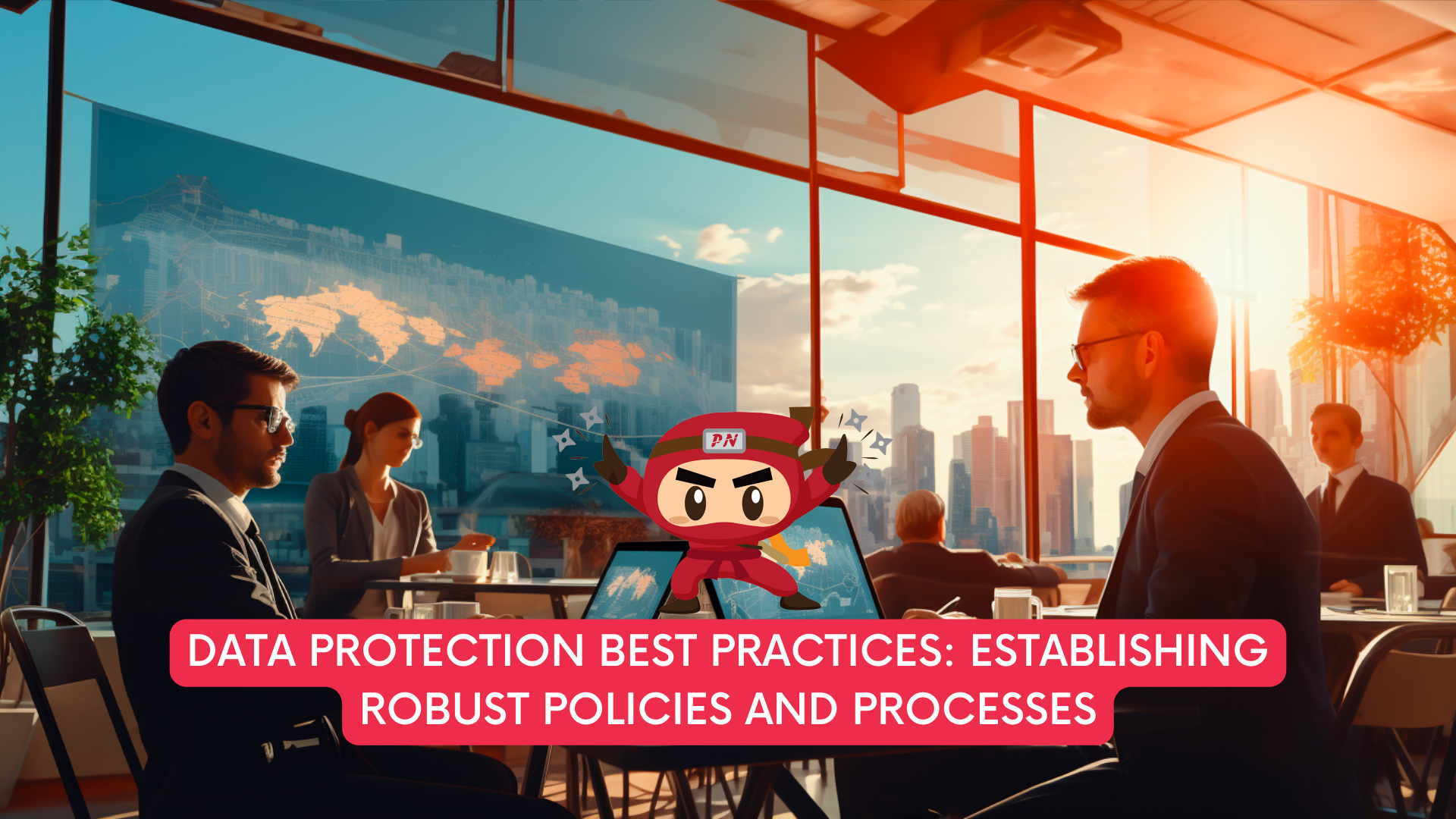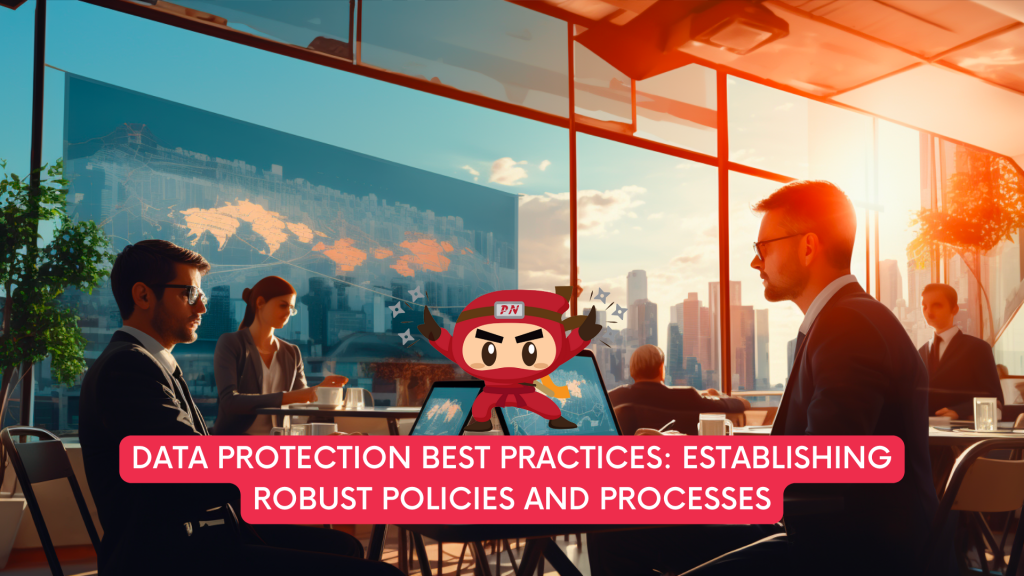KEEP IN TOUCH
Subscribe to our mailing list to get free tips on Data Protection and Cybersecurity updates weekly!







Personal data has become a cornerstone of modern business operations, and safeguarding the privacy and security of this information has become paramount. Establishing policies and processes for every action involving personal data is crucial for its safety, ensuring that there are no instances of human errors that could potentially lead to breaches.
In this comprehensive article, we delve into the significance of establishing robust policies and processes for personal data protection, exploring their role in mitigating risks, fostering a culture of compliance, and upholding trust with stakeholders.
Personal data has emerged as a valuable asset for organizations across various industries, ranging from financial institutions to healthcare providers and e-commerce platforms. However, with the increasing volume and complexity of personal data being collected and processed, the risk of data breaches and privacy violations has also escalated.
Human errors, such as inadvertent data disclosures, misconfigurations, and unauthorized access, pose significant threats to the security and integrity of personal data. Establishing clear and comprehensive policies and processes for handling personal data is essential for mitigating these risks and ensuring compliance with data protection regulations.
Robust policies and processes serve as a first line of defense against data breaches and privacy incidents. By clearly defining roles, responsibilities, and procedures for handling personal data, organizations can minimize the likelihood of human errors and unauthorized access.
Implementing strict access controls, encryption mechanisms, and data retention policies further enhance data security and reduce the risk of data exposure. Additionally, regular training and awareness programs help educate employees about the importance of data protection and equip them with the knowledge and skills to adhere to organizational policies and procedures.

Compliance with data protection regulations, such as the General Data Protection Regulation (GDPR) and the Personal Data Protection Act (PDPA), is not only a legal requirement but also a business imperative. Non-compliance can result in severe financial penalties, legal repercussions, and reputational damage.
Establishing robust policies and processes for personal data protection demonstrates an organization’s commitment to compliance and fosters a culture of accountability and transparency.
By aligning policies with regulatory requirements and industry standards, organizations can streamline compliance efforts and mitigate the risk of regulatory sanctions.
In today’s data-driven economy, trust is a valuable currency that underpins relationships between organizations and their customers, partners, and stakeholders.
Any breach of trust, such as a data breach or privacy violation, can have far-reaching consequences, eroding confidence and damaging reputation.
Establishing robust policies and processes for personal data protection is essential for maintaining trust and confidence with stakeholders. By demonstrating a proactive approach to data protection and transparency in data practices, organizations can build trust, enhance brand reputation, and differentiate themselves in the marketplace.
Establishing robust policies and processes for personal data protection is essential for safeguarding privacy, mitigating risks, and upholding trust with stakeholders.
By implementing clear and comprehensive policies and procedures, organizations can minimize the likelihood of data breaches and privacy incidents, foster a culture of compliance, and demonstrate a commitment to data protection and privacy.
Ultimately, investing in robust policies and processes for personal data protection is not only a legal requirement but also a strategic imperative for organizations seeking to thrive in an increasingly complex and interconnected digital landscape.

Your appointed DPO can work with you on your PDPA compliance, ensuring that there will be policies in place to make sure that the handling of personal data is PDPA compliant.
A Data Protection Officer (DPO) oversees data protection responsibilities and ensures that organisations comply with the Personal Data Protection Act (PDPA). Furthermore, every Organisation’s DPO should be able to curb any instances of PDPA noncompliance as it is the officer responsible for maintaining the positive posture of an organisation’s cybersecurity.
DPOs complement organisations’ efforts to ensure that the organisation’s methods of collecting personal data comply with the PDPA. It also ensures that policies are set in place to make sure that there will be no instances of data breaches in the future.
Don’t wait any longer to ensure your organisation is PDPA compliant. Take our free 3-minute PDPA Compliance Self-audit checklist now, the same “secret weapon” used by our clients to keep them on track. Upon completion, we will send you the results so you can take the necessary action to protect your customers’ data. Complete the free assessment checklist today and take the first step towards protecting your customers’ personal data.